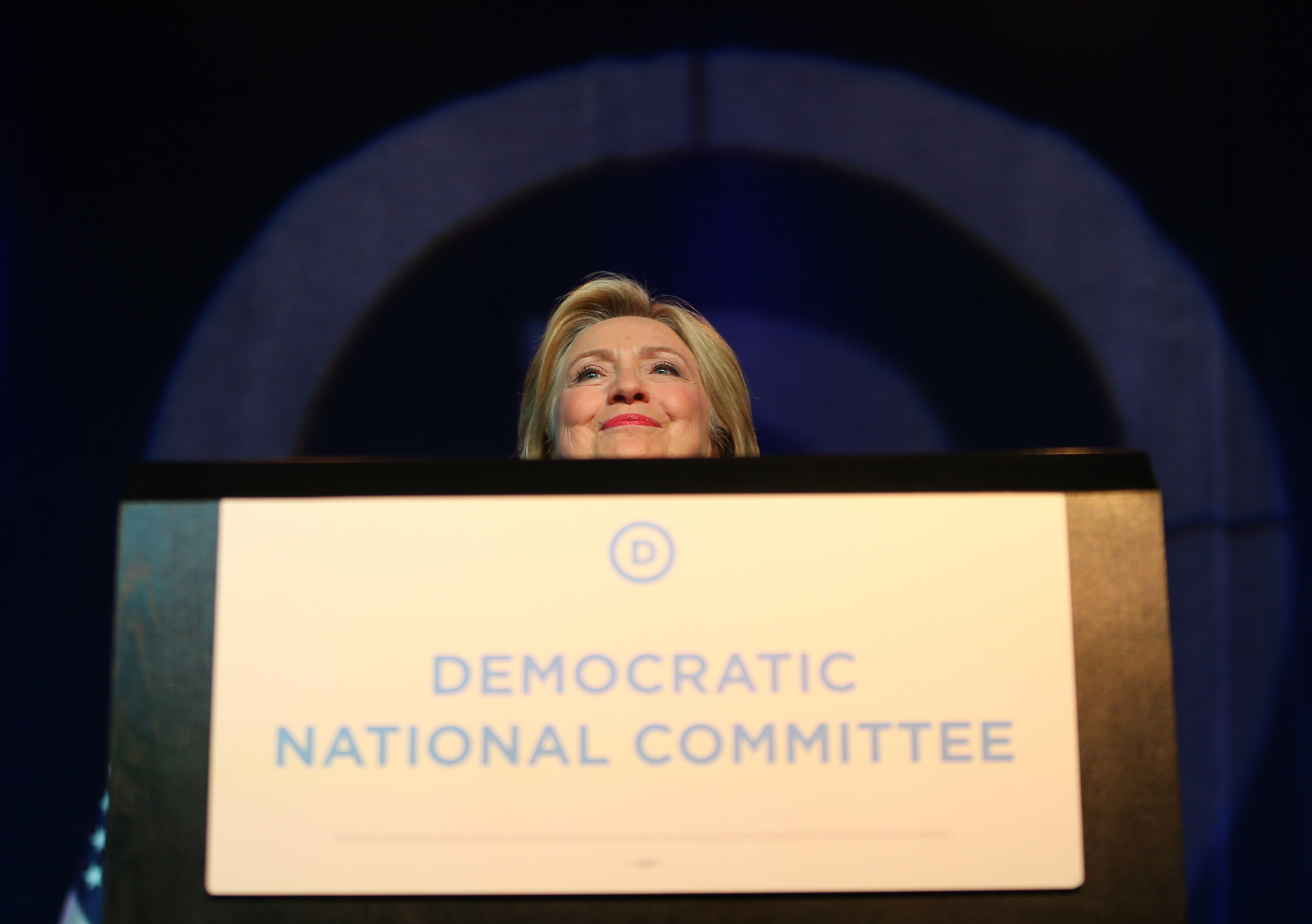DNC sues Trump campaign, Russian government, and WikiLeaks over 2016 election


A free daily email with the biggest news stories of the day – and the best features from TheWeek.com
You are now subscribed
Your newsletter sign-up was successful
The Democratic National Committee is suing the Trump campaign, Russian government, and WikiLeaks for millions of dollars in relation to the 2016 hack of DNC emails and the subsequent election of President Trump, The Washington Post reports. "This constituted an act of unprecedented treachery: the campaign of a nominee for president of the United States in league with a hostile foreign power to bolster its own chance to win the presidency," said DNC chairman Tom Perez in a statement.
The DNC claims that high-level Trump campaign officials worked with Russia to hurt Hillary Clinton's chances by stealing Democratic emails and disseminating them via WikiLeaks. The lawsuit is similar to one filed by the party in 1972 over the Nixon re-election campaign's break-in at the Democratic headquarters, The Washington Post reports, which ultimately ended in President Richard Nixon's resignation.
Special Counsel Robert Mueller is still conducting his own investigation into whether or not Trump's team colluded with Russia to swing the election. The House Intelligence Committee, which is controlled by Republicans, previously concluded that there is no evidence of such collusion.
The Week
Escape your echo chamber. Get the facts behind the news, plus analysis from multiple perspectives.

Sign up for The Week's Free Newsletters
From our morning news briefing to a weekly Good News Newsletter, get the best of The Week delivered directly to your inbox.
From our morning news briefing to a weekly Good News Newsletter, get the best of The Week delivered directly to your inbox.
Trump is not personally named as a defendant in the DNC lawsuit, although his son Donald Trump Jr., his son-in-law Jared Kushner, and his former campaign chairman Paul Manafort are. Russia's GRU military intelligence service is also named as a defendant, as is WikiLeaks founder Julian Assange.
A free daily email with the biggest news stories of the day – and the best features from TheWeek.com
Jeva Lange was the executive editor at TheWeek.com. She formerly served as The Week's deputy editor and culture critic. She is also a contributor to Screen Slate, and her writing has appeared in The New York Daily News, The Awl, Vice, and Gothamist, among other publications. Jeva lives in New York City. Follow her on Twitter.
-
 How the FCC’s ‘equal time’ rule works
How the FCC’s ‘equal time’ rule worksIn the Spotlight The law is at the heart of the Colbert-CBS conflict
-
 What is the endgame in the DHS shutdown?
What is the endgame in the DHS shutdown?Today’s Big Question Democrats want to rein in ICE’s immigration crackdown
-
 ‘Poor time management isn’t just an inconvenience’
‘Poor time management isn’t just an inconvenience’Instant Opinion Opinion, comment and editorials of the day
-
 Witkoff and Kushner tackle Ukraine, Iran in Geneva
Witkoff and Kushner tackle Ukraine, Iran in GenevaSpeed Read Steve Witkoff and Jared Kushner held negotiations aimed at securing a nuclear deal with Iran and an end to Russia’s war in Ukraine
-
 Pentagon spokesperson forced out as DHS’s resigns
Pentagon spokesperson forced out as DHS’s resignsSpeed Read Senior military adviser Col. David Butler was fired by Pete Hegseth and Homeland Security spokesperson Tricia McLaughlin is resigning
-
 Judge orders Washington slavery exhibit restored
Judge orders Washington slavery exhibit restoredSpeed Read The Trump administration took down displays about slavery at the President’s House Site in Philadelphia
-
 Hyatt chair joins growing list of Epstein files losers
Hyatt chair joins growing list of Epstein files losersSpeed Read Thomas Pritzker stepped down as executive chair of the Hyatt Hotels Corporation over his ties with Jeffrey Epstein and Ghislaine Maxwell
-
 Judge blocks Hegseth from punishing Kelly over video
Judge blocks Hegseth from punishing Kelly over videoSpeed Read Defense Secretary Pete Hegseth pushed for the senator to be demoted over a video in which he reminds military officials they should refuse illegal orders
-
 Trump’s EPA kills legal basis for federal climate policy
Trump’s EPA kills legal basis for federal climate policySpeed Read The government’s authority to regulate several planet-warming pollutants has been repealed
-
 House votes to end Trump’s Canada tariffs
House votes to end Trump’s Canada tariffsSpeed Read Six Republicans joined with Democrats to repeal the president’s tariffs
-
 Bondi, Democrats clash over Epstein in hearing
Bondi, Democrats clash over Epstein in hearingSpeed Read Attorney General Pam Bondi ignored survivors of convicted sex offender Jeffrey Epstein and demanded that Democrats apologize to Trump
